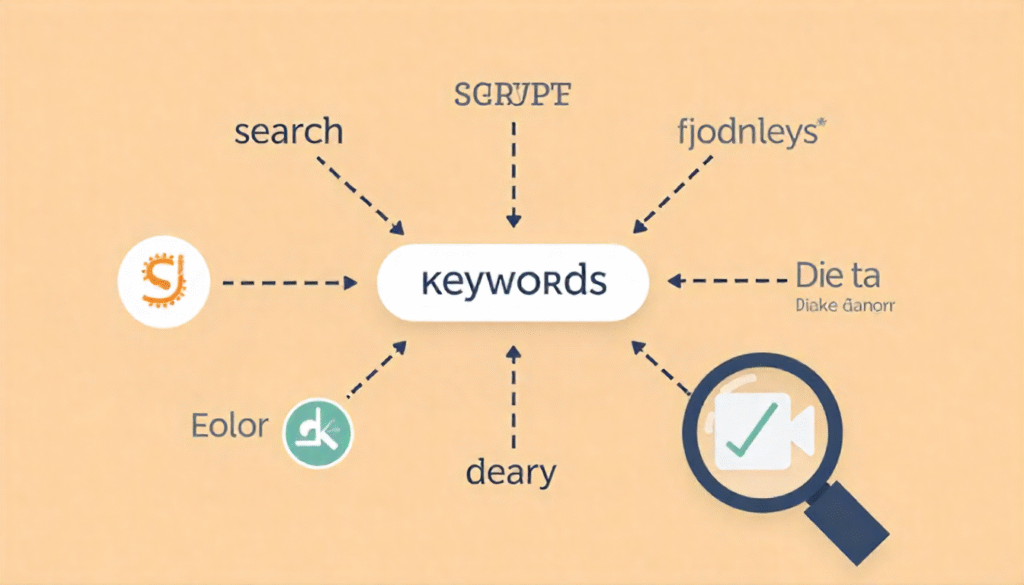In the modern SEO world, the phrase why is semantic relevance important to SEO is gaining heavy attention. Many creators try just stuffing keywords, but search engines now reward meaning, context, and relevance.
In this article, you will learn in simple, clear English how semantic relevance drives search success, steps to use it well, and what to watch out for. Let’s begin. For more insights on startup tech and digital growth, explore the Rteetech homepage.
What Does Semantic Relevance Mean in SEO?

When we ask why semantic relevance is important to SEO, we mean: does the content match the searcher’s real intent? Semantic relevance gauges how well your page’s themes, related words, and context fit what people want when they search. Instead of just matching exact keywords, looks at related words, themes, synonyms, and conceptual relationships.
When a page talks about apple variety, orchard, nutrition, it is semantically linked with fruit types, orchard care, and healthy eating. That broad relatedness helps search engines understand your page’s topic deeply.
Why Is Semantic Relevance Important to SEO?
Semantic relevance means how closely your website content matches the real meaning or intent behind what people search for. In simple words, it is not just about using the same keywords, it is about writing content that truly connects to what the user wants to know.
In old SEO methods, people tried to rank by repeating the same keyword again and again. If the keyword was best shoes, they wrote it many times in one page. But today, search engines like Google are much smarter.
They use AI and natural language understanding to study the full meaning of your content, not just the words. That is where semantic relevance becomes very important.
When your content is semantically relevant, search engines can easily understand what your page is about. They can see how all your words and ideas connect to one main topic.
This helps your page appear for different related searches, not only for one keyword. For example, if your page talks about why semantic relevance is important to SEO, it can also rank for related searches like semantic SEO, search intent, or how google understands content.
Semantic relevance also improves user experience. When readers find content that answers their question clearly and completely, they stay longer on your page.
They may even share it or visit other pages on your site. This sends positive signals to Google that your content is helpful and high quality.
Another big reason why semantic relevance is important to SEO is that it helps build trust and authority. When your website consistently provides meaningful, related, and well-explained content around a topic, google starts seeing your site as an expert in that area. Over time, this increases your overall search ranking.
In short, semantic relevance makes your content clear, useful, and discoverable. It connects your writing with what users are really looking for, and it helps Google understand and reward your effort.
So, instead of focusing only on one keyword, focus on the meaning, topic, and intent behind it. That’s the true key to success in SEO today.
How to Create SEO Content That Has Semantic Relevance

Start with user intent. Think about what a person expects when they search for (why is semantic relevance important to SEO.) Usually, they want a clear definition, the main benefits, easy steps to follow, and some practical examples. When you understand what users want, you can create content that truly helps them.
Use related words and synonyms. For this keyword, you can also include terms like semantic SEO, contextual relevance, topic relevance, search engine meaning, and semantic matching. These related words help search engines understand your topic better and show your page for more searches.
Build topic clusters by linking related pages that share similar themes. For example, if you write an article about semantic relevance, connect it with other pages about user intent, keyword clustering, or LSI words. This shows Google that your site covers the topic in depth.
Use headings that clearly reflect each concept or theme. For example, you can create sections such as concept links, context mapping, content depth with relevance, and tools to check semantic fit. This helps readers navigate your content easily and understand your points.
Write in a natural tone. Do not repeat your keyword in every line. Instead, use related expressions where possible. This makes your writing sound natural and easy to read.
Add internal links to your related articles to increase the strength of your site’s overall topic. Also, use good external sources when needed to support your points and make your content more trustworthy.
Finally, add structured data (schema) whenever possible. It helps search engines understand your content beyond the words on the page. Keep updating and expanding your content regularly. As your site grows and adds more related topics, your semantic relevance becomes stronger over time.
Table: Key Semantic Relevance Facts
| Feature | Role in SEO | Example / Use |
| Concept map | Shows how topics connect | You link semantic relevance, to user intent, and search context. |
| Synonyms and related terms | Broadens reach | Use contextual meaning, topic relevance, semantic fit. |
| Content depth | Signals authority | A page that explores benefits, methods, pitfalls |
| LSI / co-occurrence | Supports meaning | Use words frequently found near your main keyword in top ranked pages |
| Internal linking | Reinforces topic cluster | Link to pages on search intent ,semantic SEO tools. |
| Schema / structured markup | Clarifies meaning to machines | Use FAQ schema, article schema for better semantic cues |
How Semantic Relevance Affects Keywords
When you wonder why semantic relevance is important to SEO, think also about keywords. In older SEO, exact match was king. Now:
- Keywords are entry points; semantic relevance gives them depth.
- A well matched page can rank for terms that never appear exactly in the text, because it covers the same concept.
- Search engines map synonyms and context. If your content is semantically rich, it can rank for those mapped terms too.
- Keyword density becomes less critical. Semantic balance matters more.
Thus, it is smarter to think less about stuffing the phrase why is semantic relevance important to SEO everywhere, and more about covering the full idea with related language.
Mistakes to Avoid

- Do not deviate off topic. Adding random tangents breaks semantic focus.
- Avoid over-optimizing. Forcing synonyms unnaturally can harm readability.
- Do not ignore search intent. Semantic relevance must align with what people expect to see.
- Beware shallow content. A superficially wide article without depth loses trust.
- Avoid copying competitor language too closely. Use your own voice while matching the theme.
Final Thoughts
Semantic relevance is not optional in modern SEO. It defines how search engines interpret your content, determine its worth, and rank it for varied but related queries. Focusing solely on exact keywords is outdated.
When you aim for meaning, context, and alignment with user intent, your site becomes stronger, trusted, and more visible. Making semantic relevance your guiding principle will serve you well now and into the future. learn more about our SEO for business growth strategies instead of just “Rteetech LCC”.
FAQs
What is semantic relevance in SEO?
Semantic relevance means your content fits not just a keyword but the broader meaning and context of what searchers want.
How does semantic relevance help rankings?
It helps search engines match your content to queries beyond exact phrases, improving visibility for related searches.
Can I ignore my main keyword and only use related words?
No keep your main phrase as anchor, but support it with related words and context for full coverage.
Is there a risk in using too many synonyms?
Yes, overuse can hurt readability. Use them naturally and sparingly.
Do I need special tools for semantic relevance?
They help, but you can also analyze top pages and use manual research to find related terms.
Will semantic relevance fix low traffic by itself?
It helps. But quality, usability, backlinks, and other SEO practices are also needed.
How often should I update content for relevance?
Regularly especially when new related terms or user trends emerge.
Can semantic relevance help with voice search?
Yes voice queries are more conversational, so semantic context plays a bigger role.



